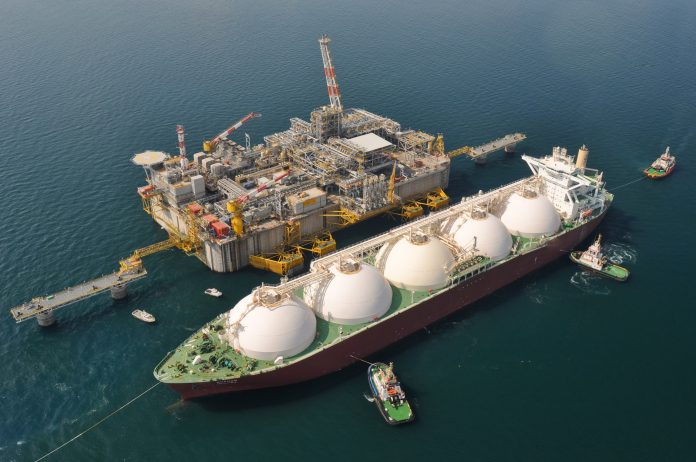KARACHI: Pakistani conglomerate Engro Corp expects to complete building its second liquefied natural gas (LNG) terminal in early 2019, a senior company official said, as Pakistan bets heavily on LNG imports to curb energy shortages.
Engro built Pakistan’s first LNG terminal in 2015 and is now finalising plans with Royal Dutch Shell, Fatima Group and trading house Gunvor for another terminal with capacity of 4.5 million tonnes per year.
Pakistan has become a hot destination for global energy giants, with producers such as Exxon and traders like Vitol seeking partners to build terminals after Prime Minister Shahid Khaqan Abbasi re-oriented Pakistan’s energy policy towards gas.
A second terminal is due to come on line later this month, easing gas shortages that have hobbled Pakistan’s manufacturing sector and wider economy for more than a decade. Private companies are racing to build several other terminals.
Jahangir Piracha, chief executive of Engro’s LNG unit, Elengy Terminal Pakistan, said his consortium expects to sign a final investment decision (FID) in the next few months and would then build the terminal in about a year.
“The technical studies are all done. We are looking at early 2019 (to complete the project) if everything goes right,” Piracha said.
A rival LNG terminal project by a six-member consortium that included ExxonMobil and Qatar Petroleum, appears to be in trouble after the American company pulled out, Pakistani officials said. ExxonMobil, however, remains very keen on Pakistan and is looking at other terminal projects.
Unlike Pakistan’s first two terminals where the government guaranteed to buy all the gas due to be imported, the subsequent terminals are going to be entirely private ventures with no government off-take guarantees.
Engro’s Piracha said the biggest challenge for the Engro consortium is to convince gas buyers such as power plants and factories to sign up before the project is on the ground.
“Because there are so many people trying to develop a project, (local buyers) want to bet on the right horse. They don’t want to sign up with you to find out that your project didn’t come through,” he said.
Piracha said this posed a problem for terminal developers who would prefer to have signed-up customers before making a final investment decision.
“It’s a bit of a chicken and egg story,” Piracha said. “My own feeling is that people want to see an investment and then they will sign up.”
Piracha said other companies in the Engro group could sign up to be consumers from the terminal, which has the capacity for regasification of up to 600 million cubic feet per day, as could businesses from consortium partner Fatima, another major Pakistani conglomerate.




